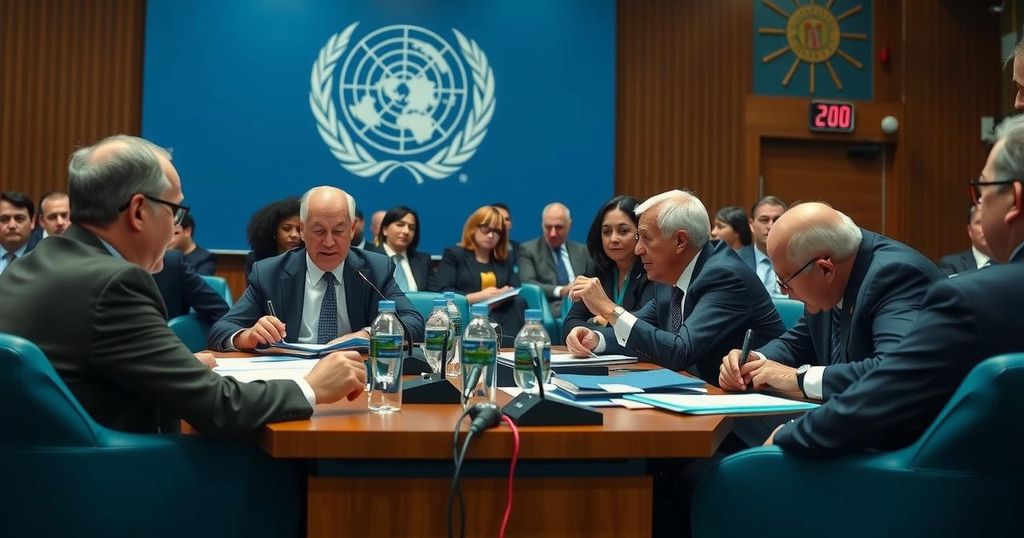The UN climate summit in Baku sees officials emphasizing the need for substantive negotiations to secure financial aid for developing countries fighting climate change, highlighting a projected requirement of $1 trillion. Disparities in funding responsibilities are debated, with critics questioning wealthier nations’ intentions. Concurrently, discussions at the G20 summit address climate change, pushing for accountability among major economies. The outcome of these talks is pivotal for global climate finance and policy.
The climate negotiations at the United Nations summit in Baku have entered their second week, with officials urging for significant progress on securing financial support for developing nations adapting to climate change. Simon Stiell, the UN Climate Change executive secretary, stressed the importance of moving beyond theatrics and into substantive discussions, highlighting the urgency of the situation. Key ministers from across the globe have gathered to confront the pressing need for increased funding to assist developing countries in shifting away from fossil fuels and addressing climate-related losses, with an estimated requirement of approximately $1 trillion in climate funds. Negotiators are encountering disparities regarding the responsibility for funding, as some wealthier nations propose that developing countries—such as China and various Gulf states—also contribute financially. Critics, including Teresa Anderson from ActionAid International, question the motives behind this suggestion, arguing that it may serve as a diversion from the real issues at hand and potentially reduce financial aid from rich nations. Simultaneously, Rachel Cleetus from the Union of Concerned Scientists emphasized that the projected one trillion dollars might be seen as a bargain in the coming years, especially considering recent extreme weather incidents across various regions. Amid these discussions, significant meetings are also occurring at the G20 summit in Brazil, focusing on climate change alongside other global challenges. Advocates like Harjeet Singh assert that G20 nations must recognize their historical contributions to greenhouse gas emissions and take accountability by committing to substantial public financing for climate initiatives. The Organization for Economic Cooperation and Development (OECD) is deliberating on a proposal aimed at reducing public investment in foreign fossil fuel projects, potentially impacting up to $40 billion worth of projects contributing to carbon emissions. This situation has spurred protests from activists who contend that certain nations are hindering necessary progress towards finalized agreements. The pressure is on leaders like President Biden to champion effective climate action, as the implications of these negotiations are pivotal for global climate policy and might define political legacies. Overall, the outcome of the talks in Baku will significantly influence the financial landscape designed to address the global climate crisis.
The ongoing climate summit in Baku represents a critical juncture for international negotiations regarding climate finance, especially for developing countries. Historically, these countries have been disproportionately affected by climate change but have also often lacked the necessary funding and resources to adapt effectively. As the world grapples with rising temperatures and extreme weather events, discussions surrounding equitable financial contributions from both wealthy and developing nations have become increasingly important. The necessity for approximately $1 trillion in global climate funds underscores the urgency of these talks.
The climate discussions in Baku are underscored by urgent calls for increased funding and collaborative responsibility to combat climate change. With diverging positions among countries on funding distribution and accountability, the necessity for clear commitments, particularly from wealthier nations, remains paramount. As the summit progresses, the global community’s ability to reach a consensus will be crucial in addressing the far-reaching impacts of climate change while ensuring a sustainable future for developing nations.
Original Source: www.bostonglobe.com






